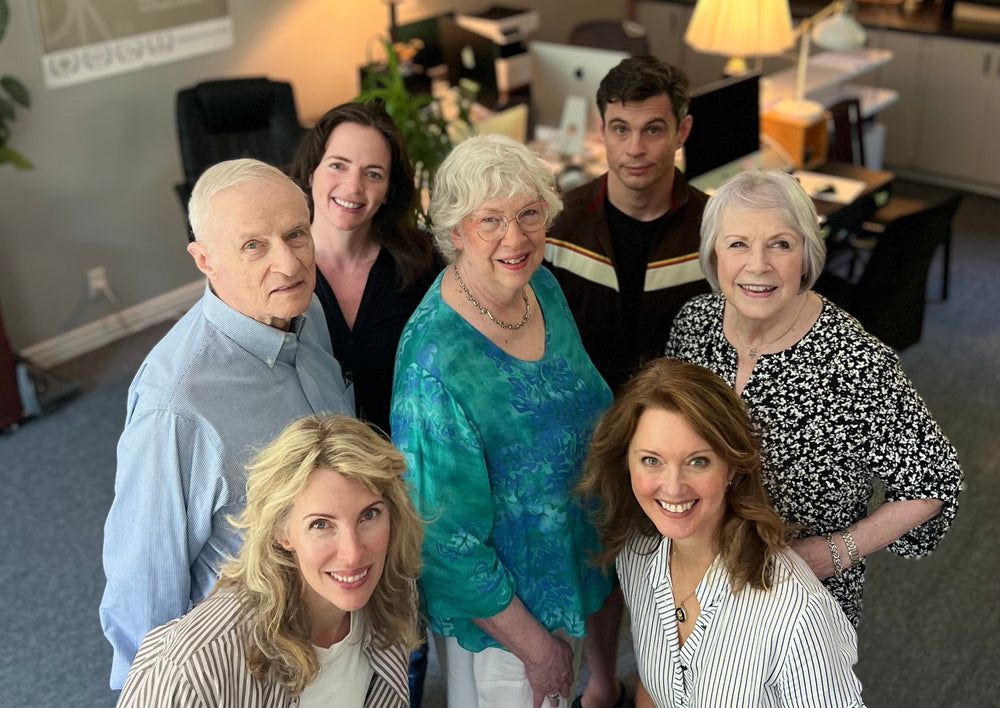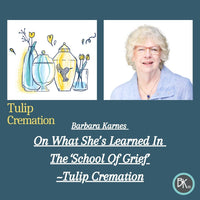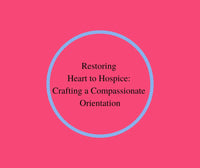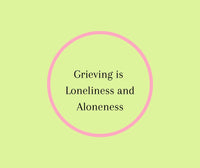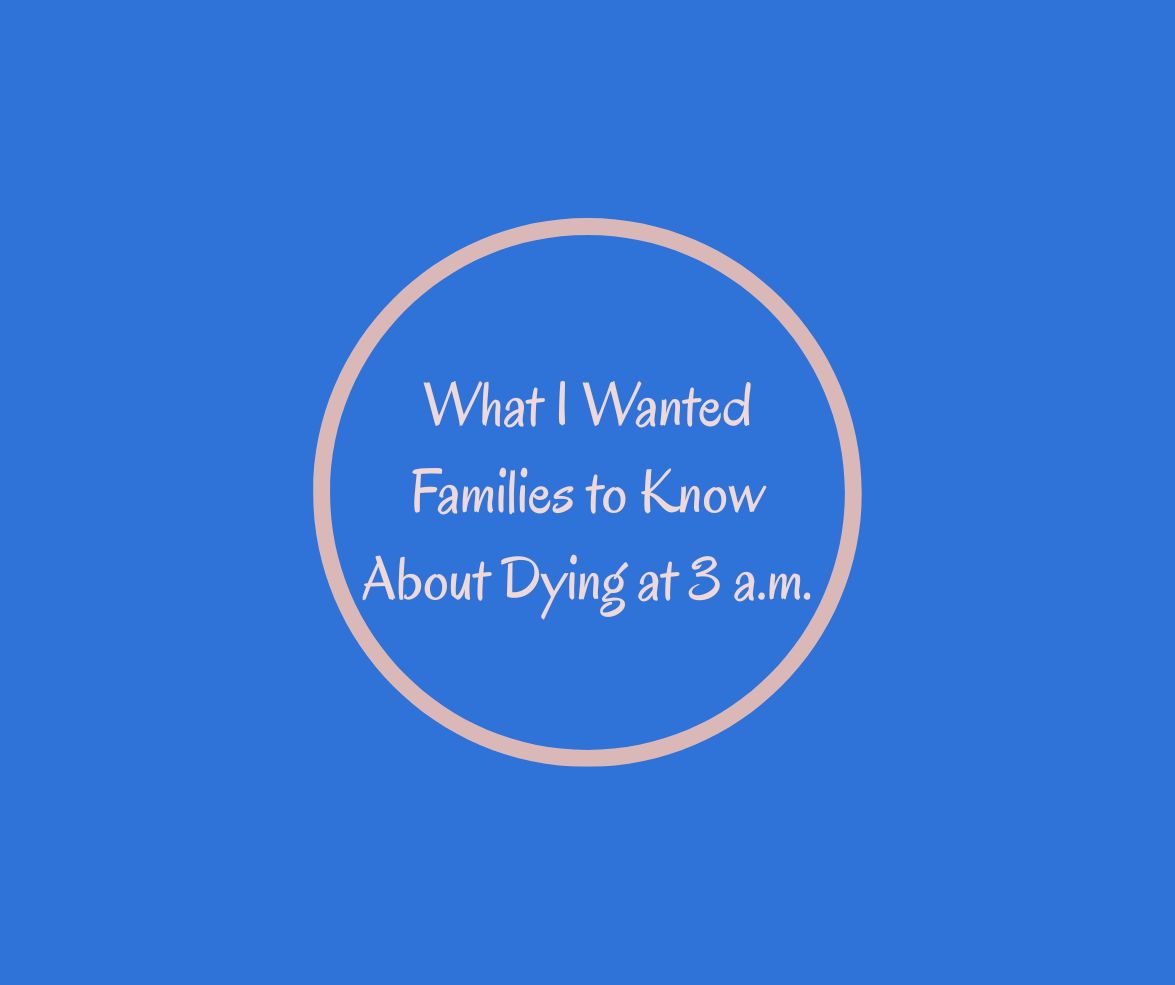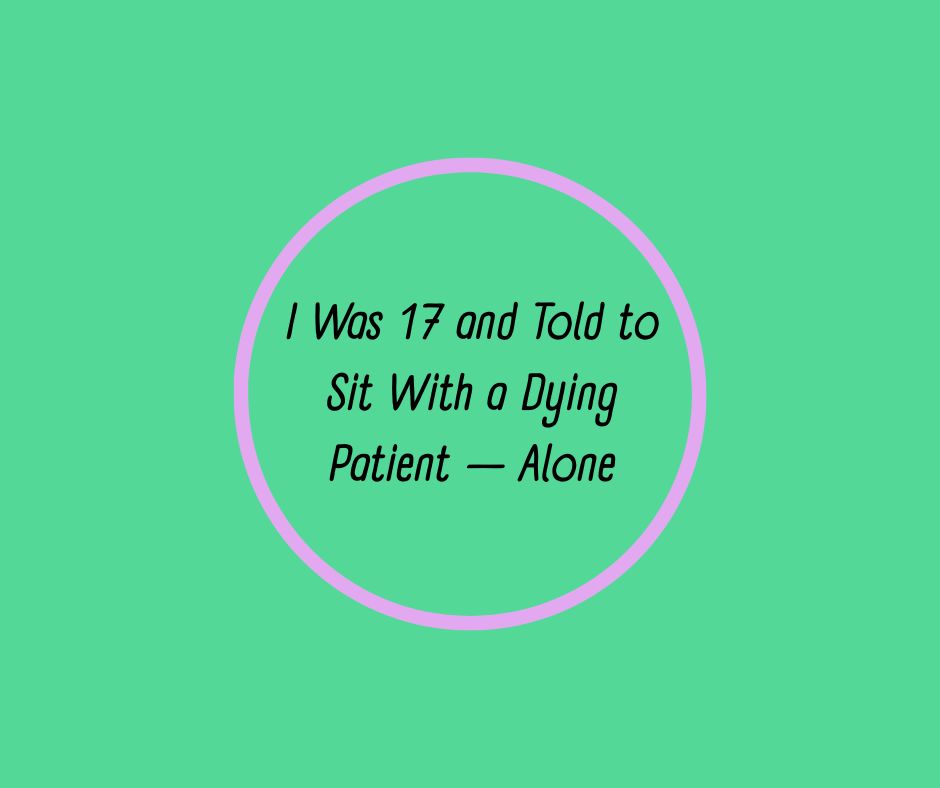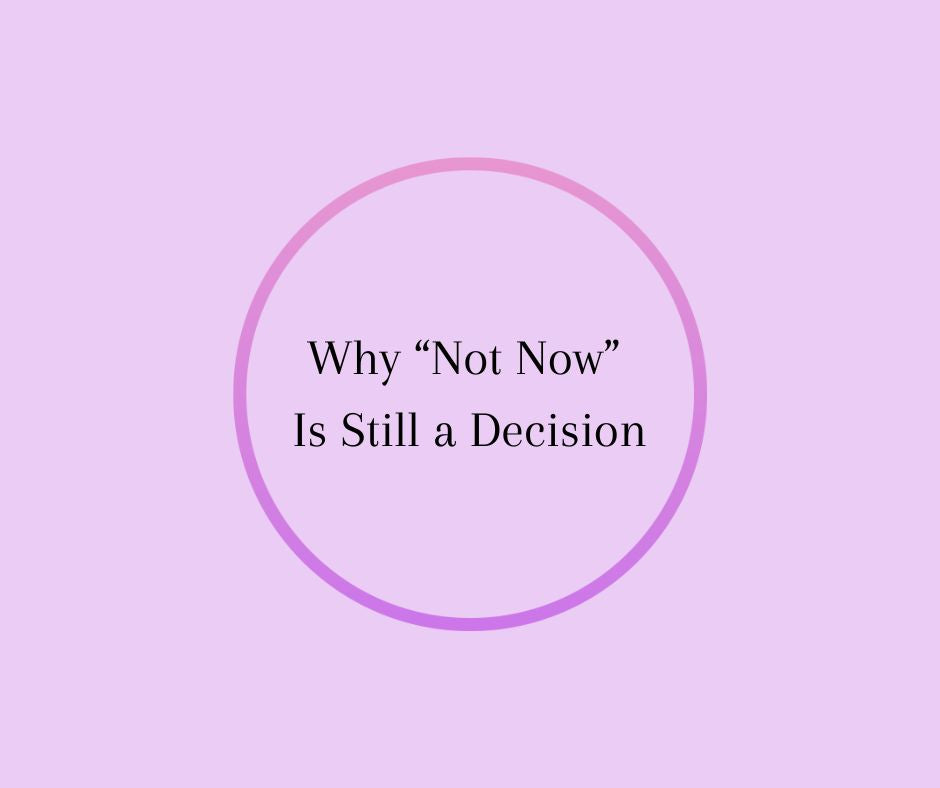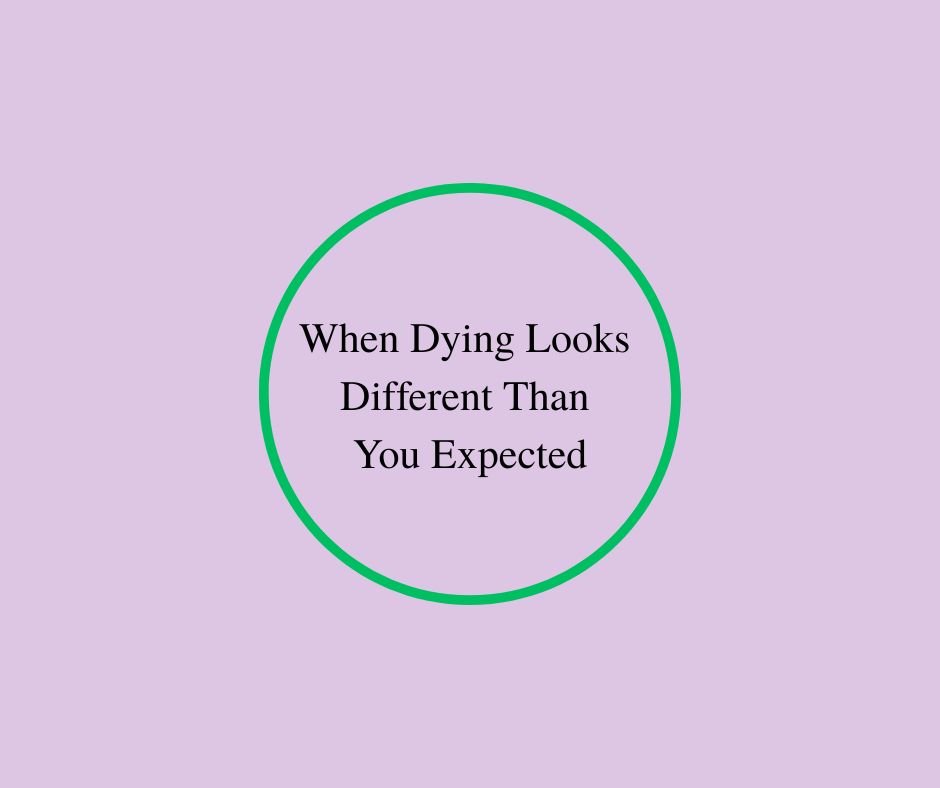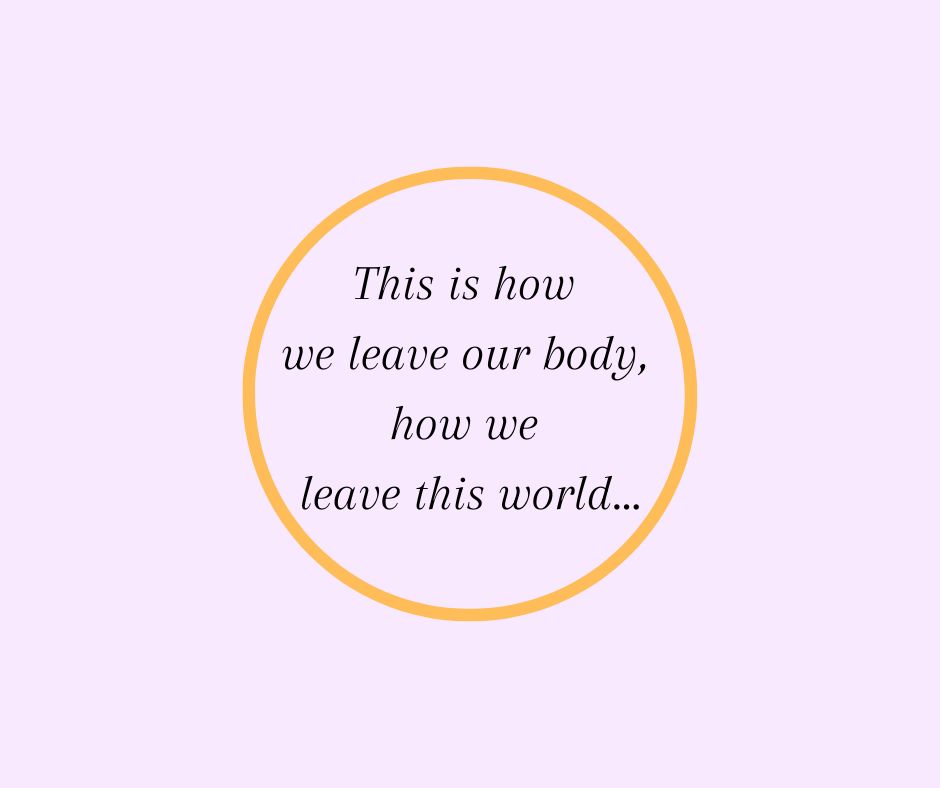
Something to Think About
a blog on end of life
- All posts
- addiction
- advance directive
- alzheimers
- Anger
- anticipation
- anticipatory grief
- Approaching Death
- assisted care
- assisted death
- Assisted Living
- Barbara Karnes
- bereaved
- Bereavement
- burnout
- BY YOUR SIDE A Guide for Caring for the Dying at Home
- cancer
- caregiver
- caregiver fatigue
- caregiver support
- caregiving at end of life
- children
- Clinician
- cna
- comfort care
- communication
- covid 19
- Dame Cicely Saunders
- Death
- death and dying
- death awareness
- death cafe
- death call
- death care
- death doula
- death education
- death midwife
- death of a pet
- death ritual
- dementia
- dementia doula
- diagnosis
- Director of Education
- disease
- DNR
- doctors
- dying
- dying looks different than expected
- dying pet
- dying process
- Dynamics of Dying
- Eating or not eating
- elderly
- Elisabeth Kubler-Ross
- end of life
- end of life doula
- end of life education
- end of life planning
- estate planning
- euthanasia
- family
- family caregiver
- father
- Fear
- Feeding
- Financial records
- Food
- food at end of life
- Funeral
- gift
- Gone From My Sight
- graduating from hospice
- gratitude
- Grief
- Grief Counselor
- grief support
- grieving
- Guilt
- holidays
- Home Care
- home death
- home health
- home healthcare
- Hospice
- Hospice Blue Book
- hospice care
- hospice chaplain
- hospice education
- hospice end of life care
- hospice for pets
- hospice myths
- hospice nurse
- hospice nurses
- hospice patient
- hospice physician
- hospice referral
- Hospice Social Worker
- Hospice Staff
- hospice volunteer
- hospice volunteer training
- hospital
- How Do I Know You ?
- How Do I Know You? Dementia at the End of Life
- Hydration or dehydration
- infant death
- joy
- labor
- labor at end of life
- labor to be born
- life limiting
- life support
- loss
- media
- Medicade
- medical visits
- Medicare
- medication
- medications
- memory care
- midwife
- mindfulness
- moment of death
- morphine
- mother
- My Friend I Care
- narcotics
- New Rules For End Of Life Care
- No Code
- Not Eating
- nurse
- nurses aide
- Nursing facility
- Nursing home
- nutrition
- Old Age
- older pet
- orientation
- oxygen
- pain
- pain at end of life
- pain management
- pain relief
- palliative care
- palliative sedation
- pandemic
- peace
- personality
- Pet death
- Pet illness
- physician
- podcast
- POLST
- prepare for death
- quality of life
- religion
- Retirement Home
- ritual bath
- RN
- sacred
- self care
- seniors
- signs of approaching death
- sleep
- Social Worker
- spanish grief literature
- stages of grief
- sudden death
- Suicide
- Supervisors
- support
- terminal
- terminal agitation
- terminal diagnosis
- terminal illness
- terminal restlessness
- The Eleventh Hour
- The Final Act of Living
- This Is How People Die
- Time
- Time of Death
- trauma
- treatments
- vigil
- visions
- volunteer
- volunteers
- washing the body
- widow
- widowhood
- wife
- Will
- You Need Care Too
Years ago, a 3 a.m. hospice call changed the way I thought about caring for families at the bedside.It led me to write down what I wanted families to know...
When I was 17, I was told to sit with a dying patient — alone. I didn’t know then how profoundly that moment would shape my life’s work...
Many of us avoid thinking about death, assuming it won’t affect us or our loved ones—until it does. This article explores advance directives, DNRs, and why understanding these choices matters...
Guilt is part of love’s shadow — the echo of what we wish we’d done differently. Healing begins when we release that burden and let how we live now be...
After being present at so many deaths, I’ve come to believe that we die the way we’ve lived. Our personality doesn’t change because we’re dying. Dying is the last part...
Most of us imagine dying will be quiet and peaceful, but real dying often looks different. Nothing bad is happening — the body is doing the natural work of letting...
It is hard to comprehend that our special person will die no matter what we do. No matter how many treatments, how much medicine, or how much food we give,...
So often I have walked into a room when family is standing at the side of the room, watching. Watching their special person dying...
First, there is no perfect relationship. Life is a learn-by-trial adventure. It’s hard work, not always smiles and happiness.
What do you say to someone to get them to accept hospice? Well, one thing to say after explaining the services hospice offers is to ask what they think will...
If I could sit beside you at the bedside, this is what I would place in your hands. Whether you’re a family member, a friend, a caregiver, or an end-of-life...
How do we interact with someone dying a sudden death? The same way we would react with someone dying a gradual death.
The experience of dying a gradual death is an important, integral part of life. It is an opportunity to write our final chapter, to define the ending of our story...
Just as we have to go through an intensive process to enter this world, so do we go through labor to leave it.
We need to explain the way most people die — especially the not so pretty parts. This includes the sounds, movements, pees, poops, frowns, grimaces, and the struggles that accompany...
When we see our special person struggling, we, the watchers, think something pathological is happening or we think the professionals are not doing enough to provide proper care...
We used to have role models on what dying really looks like. People died at home, in their own bed. Family and friends gathered — held a vigil, so to speak. When...
As end of life approaches, people start looking at their life; what they’ve accomplished, not done, who they have touched, interacted with, and the relationships they have or have not built...
People don’t die like they do in the movies. Mom is not going not going to say some profound words, close her eyes and be dead...
The space between birth and death is the most important part of life YET we somehow go through the living part unaware. In a hurry, with a great deal of tension, and very little...
I see Death Cafes as the start of a conversation; the start of opening ourselves up to exploring end of life issues; the start of breaking the belief that if I talk...




